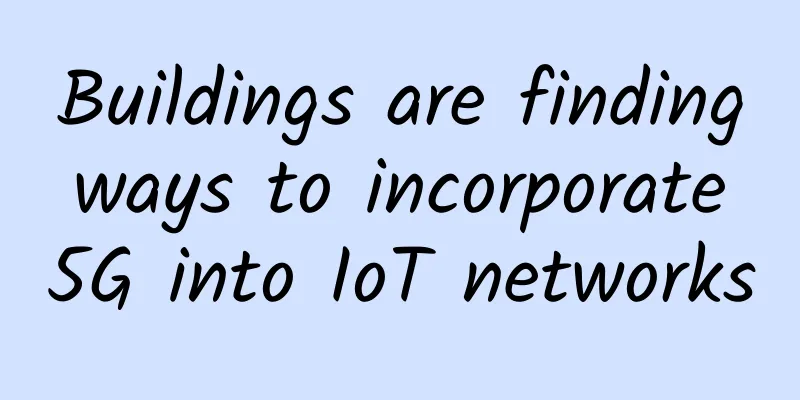5G will greatly accelerate the marginalization of the industry

|
Many see 5G wireless technology as the next wave in cellphone connectivity, ensuring fast downloads and a boom in connectivity. That's all well and good, and while smartphones will be where 5G is most visible, much of the technology will operate behind the scenes as a powerful edge network. 5G will also connect industrial equipment, medical devices, and smart city beacons.
Edge computing is expanding the potential of distributed intelligence to nearly every industry, but its impact is most evident in manufacturing and healthcare. Now, with edge technology in place and expanding, 5G wireless technology is poised to take things to a whole new level. That’s according to a series of reports published by KPMG, which suggest that manufacturing will be the first industry to significantly unlock the value of 5G, “accounting for around 5% of a typical manufacturer’s annual revenues”. 5G will greatly accelerate the marginalization of the industry 5G in Manufacturing For example, 5G smart sensors will bring real-time responses to many systems and machines in industrial settings. These sensors “will further accelerate automation and allow machines to update themselves and initiate new processes when needed,” the KPMG authors observed. “These smart sensors will be able to assess the quality of parts being manufactured in real time, reducing the requirement for reworking.” Other key benefits that 5G will bring include “reduced wear and tear on machinery due to unnecessary maintenance or premature replacement,” the report states. “5G-enabled sensors will be able to report when components need to be replaced, rather than when they are thought to be due.” 5G in Healthcare 5G will have a transformative impact on the entire healthcare industry, from medical devices to patient communications. For example, with 5G technology, patients' health can be constantly monitored through artificial intelligence and big data, the KPMG authors said. "We estimate that 5G could free up 1 million hours of GP time each year and result in more than $1.6 billion in productivity gains," they estimated. "At the same time, the average person will save more than three hours of GP visits each year, also protecting themselves from potential viral infections and waiting room infections." Additionally, continuous monitoring and telemedicine enabled by 5G networks “will also automatically update an individual’s health status with the latest data and information.” It will flag potential risks and areas of concern. In hospitals, 5G could also help transform surgical procedures through remote surgery, the KPMG report noted. “Initially, this could be a leading expert watching a surgery remotely and speaking into the operating surgeon’s ear to give them advice and guidance… Eventually, an expert surgeon might be able to control robotic mechanical movements through their own teleoperated hand movements, performing effective surgery on a patient on the other side of the globe.” 5G in cities Government is another industry that will see new opportunities as 5G networks proliferate. As Shannon Flynn explains in TechAcute, Flynn noted that, first, 5G can play a role in reducing automobile pollution and congestion, providing fast communications for public transportation systems, and optimizing waiting times, travel times, and efficiency. 5G's rapid delivery also enables city officials to act more quickly on congestion and crime information. "Changing urban infrastructure from 5G data is an actionable step. Architects, urban designers, and engineers can work together to create a landscape that works for everyone." Manufacturers, healthcare providers, and governments are just three prime examples of how the coming 5G revolution will help move data from edge devices and networks to more centralized decision-making systems at lightning speeds. In fact, 5G is much more than just a really fast phone. |
Recommend
The Best Open Source Network Monitoring Tools of 2017
The demand for open source software continues to ...
Research and Markets: Global 5G system integration market size will reach US$45.5 billion in 2027
On April 20, according to foreign media reports, ...
Basic knowledge of wires and cables
The manufacturing of wires and cables is complete...
Will 5G charges be "cheap"? Operators: Not very expensive
From the issuance of 5G commercial licenses to th...
How will Yang Jie take the helm of China Mobile when the net profits of the two operators differ by 5 times?
It is not easy to "steer" China Mobile....
Detailed explanation of SSL protocol communication process and symmetric encryption and asymmetric encryption in HTTPS
[[276508]] Symmetric encryption The so-called sym...
The real year of 5G: What it means for cloud technology
We are now in the third year of “The Year of 5G.”...
RAKsmart cloud server $1.99/month, Hong Kong/Japan/Singapore/Los Angeles/San Jose data center
RAKsmart cloud servers also participate in the ye...
DediPath: Memorial Day promotion 1Gbps unlimited traffic server from $31.95/month, VPS hosting from $1.75/month
DediPath has launched a Memorial Day promotion, o...
The champion of Huawei Elite Competition is about to be announced. Who will win the highest title of Huawei ICT Talent?
In a few days, the finals of the two exciting eve...
NDRC: Strengthen new infrastructure such as 5G and industrial Internet to promote integrated innovation of technologies such as AI
At 10 a.m. on March 23, 2020, the Joint Preventio...
Privileged Access Management: The Future of Cyber Resilience
Attacks against critical infrastructure and gover...
LOCVPS new Japanese SoftBank line VPS, native IP, 20% discount promotion
After the Lunar New Year, LOCVPS launched a new V...
Everything You Should Know About SFP Modules
In today's network environment, many users ar...









